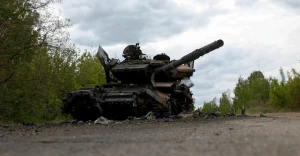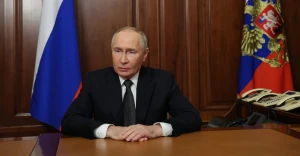
"Don't let Ukraine join NATO": what Vilnius summit is preparing and who opposes Kyiv's accession to Alliance
The NATO summit on July 11 and 12 is "ignited" by the issue of Ukraine's accession. Vilnius is also expecting the presence of President Volodymyr Zelenskyy, who is still deciding whether to attend. Read in our review whether Kyiv will get a ticket to the Alliance now and why there is still no unanimity among member states
About NATO and Ukraine's accession to the Alliance
NATO, also known as the North Atlantic Alliance or the North Atlantic Treaty Organization, is a military-political alliance of 31 states in Europe and North America that seeks to achieve the goals of the North Atlantic Treaty, signed in Washington on April 4, 1949.
The process of joining NATO involves several stages. First, a country applies for membership and completes a Membership Action Plan (MAP). Then it needs the consent of all NATO members to proceed with accession negotiations. Once invited, the negotiations continue until the stages of accession are agreed upon. The final step is receiving an official invitation from the NATO Secretary General.
It is important to note that Ukraine's relations with NATO started to develop in 1992. The country applied for the Membership Action Plan (MAP) in 2008, but plans for membership were postponed under President Viktor Yanukovych. However, since 2014, following Russia's illegal annexation of Crimea, cooperation between Ukraine and NATO has intensified. In the midst of a full-scale war and territories annexed by the aggressor, Ukraine applied for accelerated accession to NATO on September 30, 2022.
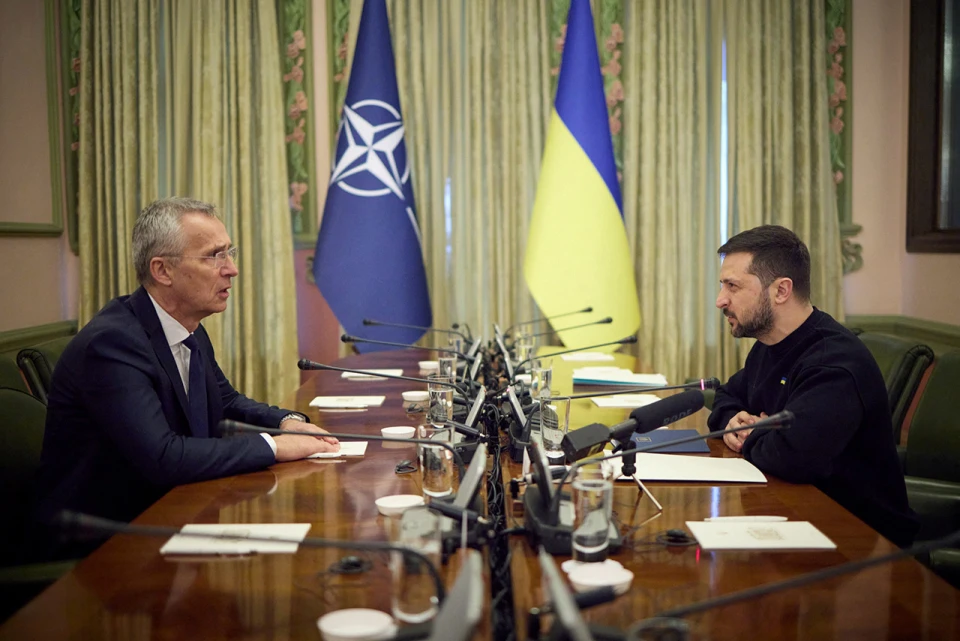
Support for NATO membership among Ukrainians has fluctuated over the years. In 2002, 32% of citizens favored joining NATO, but by 2006, that number had decreased to 15.4%. In 2013, support stood at 18%. However, following Russia's aggression and the annexation of Crimea in 2014, support for NATO membership surged to 47.8%, and remained consistently between 40-50% in subsequent years. In 2021, support levels were similar to those in 2014. After the full-scale invasion in 2022, support for NATO membership reached an all-time high of 83%, reflecting a strong desire among Ukrainians to join the alliance.
Since the beginning of Russia's full-scale war in February 2022, NATO has declared its support for Ukraine, its independence, sovereignty and territorial integrity within the internationally recognized borders of 1991. The Alliance also reiterates its unwavering commitment to supporting Ukraine's important security and defense reforms. Crucially, NATO condemns Russia's aggression against Ukraine, and member states call on Russia to immediately cease hostilities and withdraw its troops from Ukraine.
At the NATO summit in Madrid last year, the Alliance decided to expand the Comprehensive Assistance Package and further increase its support for Ukraine. At the same time, NATO member states are providing even more weapons and equipment, as well as training for the Ukrainian military, so that Ukraine can exercise its right to self-defense, as enshrined in the UN Charter. NATO countries are also providing financial and humanitarian assistance, including hosting Ukrainian refugees.
NATO has previously stated that in the long term, it is committed to supporting Ukraine's efforts in post-war reconstruction and reform. The Alliance is supporting Ukraine in the transition of the Ukrainian army to NATO equipment and standards, which will accelerate interoperability with the armed forces of NATO member states.
Expectations from the Summit in Vilnius: chronology of statements
Ukraine hopes to receive clear decisions on joining the Alliance in July during the NATO meeting in Vilnius. Discussions about the chances and expectations have intensified significantly since the end of May. On May 23, Ukraine's ambassador to NATO, Natalia Galibarenko, mentioned that Ukraine is preparing two cooperation packages (political and practical), which will be presented for discussion during the upcoming NATO Summit in Vilnius.
On May 30, Foreign Minister Dmytro Kuleba outlined three key points that define Ukraine's vision for a successful outcome at the NATO summit in Vilnius. "Strengthen Ukraine-NATO institutional ties and assistance. Take a step toward UA membership. Provide security guarantees on Ukraine’s path to NATO."
On June 10, Ukraine’s Deputy Defense Minister, Volodymyr Havrylov, expressed his belief that the July NATO summit in Vilnius will set the algorithm for Ukraine's accession to the Alliance. Subsequently, NATO Secretary General Jens Stoltenberg confirmed that Ukraine will become a NATO member in the future, but due to the ongoing war, specific dates for accession cannot be determined.
On June 15, the European Parliament adopted a resolution calling for Ukraine's membership in NATO with 425 votes in favor. The next day, Ukrainian Foreign Minister Dmytro Kuleba called on NATO chief Stoltenberg to drop the Membership Action Plan (MAP) if Ukraine joins NATO. US President Joe Biden expressed support for removing the MAP stage, making the joining process simpler for Ukraine.
Later, President Volodymyr Zelenskyy emphasized Ukraine's role in Europe's defense and called on allies to invite the country to NATO. On June 27, he stated that Ukraine has valid reasons to receive a political invitation to NATO at the Vilnius summit. And James Cleverly, Secretary of State for Foreign Affairs in the UK, assured support for Ukraine's simplified entry into NATO.
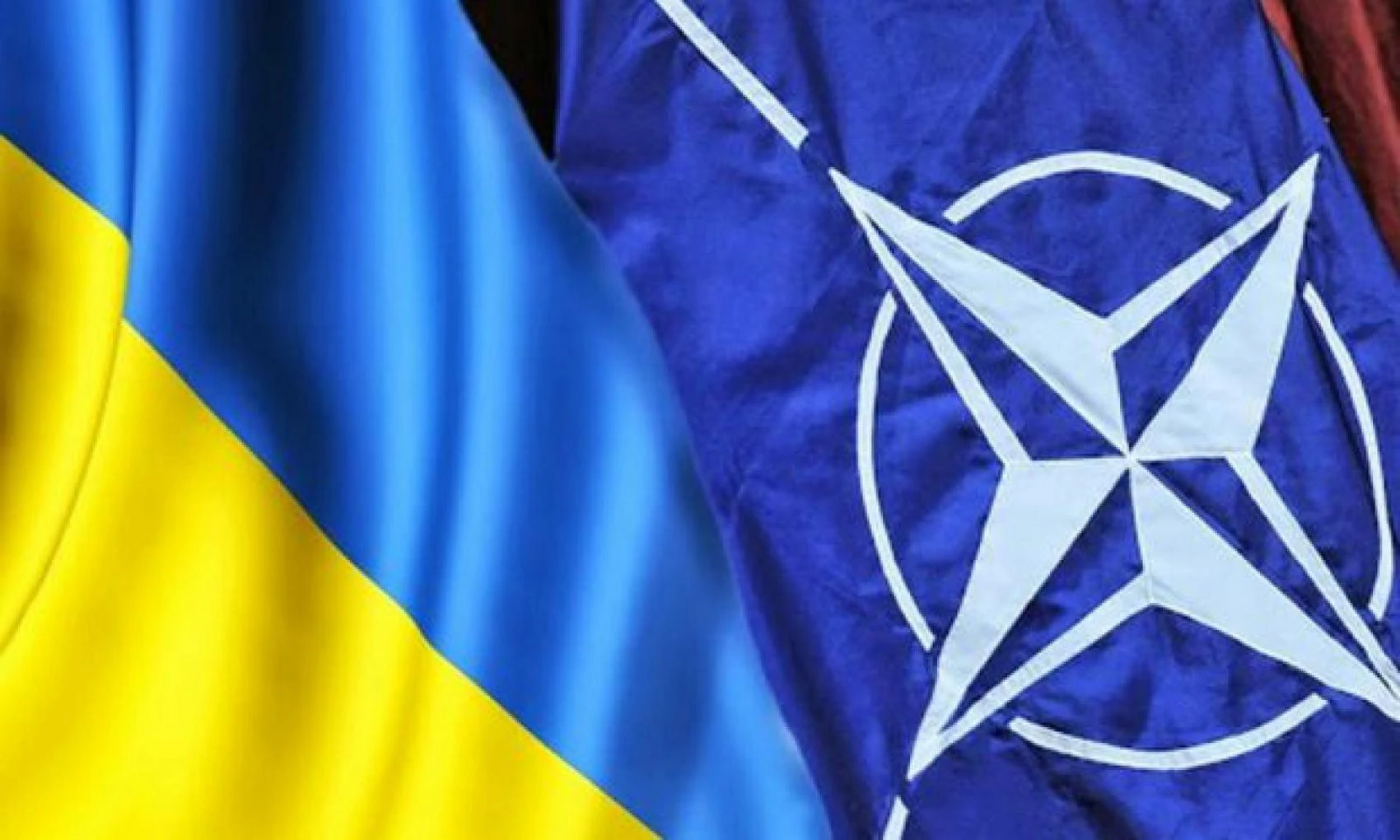
On June 28, during a speech in parliament on Constitution Day, President Zelenskyy proposed 5 points of the Ukrainian Doctrine, which stipulates that Ukraine's future lies in the EU and NATO, for discussion.
On June 30, US Ambassador to NATO Julianne Smith said that NATO member states are close to a consensus on Ukraine's accession to NATO without the MAP.
On July 4, Lithuanian President Gitanas Nausėda called on NATO allies to offer Ukraine a simplified accession to the Alliance at the Vilnius summit to increase Ukrainians' effectiveness on the battlefield.
On July 5, British Foreign Secretary James Cleverly and his Polish counterpart Zbigniew Rau expressed hope that Ukraine would be admitted to NATO under an accelerated procedure. On July 7, Jens Stoltenberg said that Zelenskyy would attend the first meeting of the NATO-Ukraine Council in Vilnius.
Turkish President Recep Tayyip Erdogan says that Ukraine deserves NATO membership and that everyone will benefit from a just peace.
Former Lithuanian President Dalia Grybauskaitė believes that the process of Ukraine's accession to NATO should be launched now, not when the war is over. The politician called it an "illusion" that the Kremlin and Ukraine can find common ground in the negotiations.
According to Reuters, security measures for the NATO summit include the deployment of thousands of soldiers equipped with state-of-the-art weaponry. Vilnius, the host city, has been transformed into a “fortress.” Germany has positioned 12 Patriot launchers, Spain has brought the NASAMS air defense system, and France is dispatching Caesar self-propelled howitzers. Military aircraft from France, Finland, and Denmark will be stationed in Lithuania, while the UK and France are providing anti-drone equipment. Additionally, Poland and Germany have deployed helicopter-enabled special operations forces.
Who is for and who is against Ukraine in NATO?
As of July 10, 2023, Ukraine's bid for NATO membership has received formal support from 23 out of 31 member states. These countries include the Czech Republic, Belgium, Montenegro, Poland, Lithuania, Italy, Latvia, Iceland, Slovenia, Estonia, Slovakia, Finland, Denmark, Norway, the Netherlands, Germany, France, Romania, Canada, Spain, Bulgaria, Portugal, and Sweden. Sweden, along with Finland, expressed their intention to join the Alliance, but their membership is pending due to Turkey's objection to Sweden's accession.
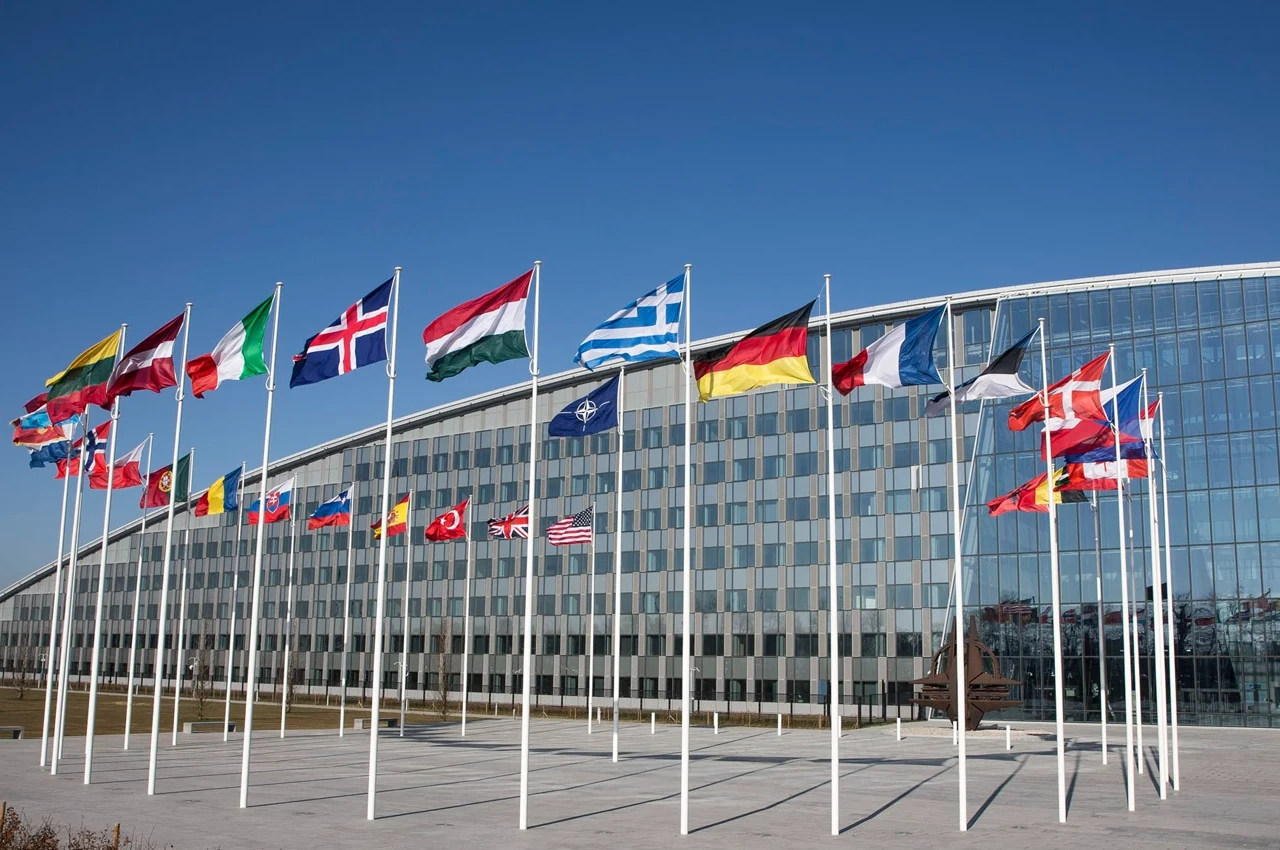
Photo: www.nato-pa.int
As for Ukraine's accession, Albania, Greece, Luxembourg, North Macedonia, the UK, the US, Turkey, Hungary, and Croatia have not yet given their declarative support.
On July 8, Ukraine's Foreign Minister Dmytro Kuleba announced that several significant decisions had been reached between Ukraine and NATO, and he expressed confidence that the summit would bring Ukraine closer to its path of joining the military-political alliance. Kuleba emphasized the importance of this outcome, as there were doubts and skepticism in the past, but Ukraine and its closest partners were able to achieve progress.
"What is missing is a decision that will make this path even faster – clarity on the invitation to Ukraine to join Now is a unique moment to bring this clarity," Kuleba emphasized.
In the evening of July 9, he also reported on productive talks with US Secretary of State Antony Blinken on the eve of the summit in Vilnius. "In the last 48 hours, we have been working to make his final decisions a victory for everyone: Ukraine, NATO, and global security," said Kuleba.
Ukraine's Deputy Prime Minister for European and Euro-Atlantic Integration, Olha Stefanishyna, announced that President Volodymyr Zelenskyy is still deliberating on whether to attend the NATO summit in Vilnius. The president's decision will depend on the clarity and content of the final documents to be discussed at the summit.
US President Joe Biden's frank assessment of whether Ukraine should be offered NATO membership during the two-day summit in Lithuania has become a sensation. "I don't think it (Ukraine - ed.) is ready for NATO membership," Biden said, explaining that there are two reasons for this: the risks of an escalating war with Russia and the lack of unanimity among the Alliance members regarding Ukraine's accession to their family. Biden believes that it is necessary to pave the way for Ukraine to become eligible for NATO membership. This process is currently underway, but until then, the United States can provide Ukraine with the same security guarantees that Israel receives. This includes military and financial assistance, as well as joint weapons production.
Biden's position was criticized by former US Special Representative for the State Department Kurt Volker. "The president has it backwards. It is not that Ukraine is not ready for NATO membership. It is NATO that is not ready to admit Ukraine. And that will come back to haunt," Kurt Volker wrote on Twitter.

On the eve of the summit of the military-political alliance in Lithuania, a resonant article was published by the influential Foreign Affairs magazine, with a speaking title "Don't let Ukraine join NATO." The authors of the article note that politicians and experts, including President Zelenskyy and former US Ambassador to NATO Ivo Daalder, insist that the Alliance offer Ukraine what French President Emmanuel Macron calls a "path to membership" after the war. But, as the article emphasizes, the way this issue is handled will have serious consequences for the United States, Europe, and beyond.
"Ukraine should not be welcomed into NATO, and this is something US President Joe Biden should make clear. Kyiv’s resistance to Russian aggression has been heroic, but ultimately states do what is in their self-interest. And here, the security benefits to the United States of Ukrainian accession pale in comparison with the risks of bringing it into the alliance. Admitting Ukraine to NATO would raise the prospect of a grim choice between a war with Russia and the devastating consequences involved or backing down and devaluing NATO’s security guarantee across the entire alliance. At the Vilnius summit and beyond, NATO leaders would be wise to acknowledge these facts and close the door to Ukraine," the authors of the article believe.
According to the article, if Ukraine joins the Alliance, the burden of finding resources to protect Ukraine will fall disproportionately on the United States. Ukraine's desire to join NATO is understandable. It is only logical that a country that has been intimidated and invaded by a stronger neighbor would seek protection from an outside power. However, strategy is a choice, and the choice of the United States today is a very serious one.
NATO Secretary General Jens Stoltenberg recently announced that at a two-day summit, the Alliance will agree to modernize Ukraine's armed forces, create a new high-level forum for consultations, and confirm that Kyiv will one day join NATO. Allied leaders also plan to increase spending on Ukraine's defense by sending additional weapons, ammunition, and other aid such as uniforms and medical equipment to Ukraine. But until the war is over, membership negotiations will not begin.
Earlier, media reported that Germany at the NATO summit will call on the allies to focus on security guarantees for Ukraine, rather than on proposals for its accession to NATO, as it believes that this could draw the Alliance into a conflict with Russia.
At the same time, on July 9, Politico reported that NATO member states were urgently negotiating security guarantees for Ukraine before the summit. The United States, Britain, France, and Germany have been discussing the issue with Kyiv for weeks, and have also reached out to other allies in NATO, the EU, and the G7. The idea is to create an umbrella for all countries willing to provide Ukraine with ongoing military assistance, even if the details differ between member states. The Alliance intends to have time to work out the parameters of a security assurance package that will be offered to Ukraine and will be in effect until it joins NATO.
Nevertheless, Deputy Prime Minister for European and Euro-Atlantic Integration Olha Stefanishyna believes that Ukraine will join NATO regardless of whether it receives an invitation to join the bloc at the summit in Vilnius. She assures that Ukraine will not receive a negative response regarding its aspirations to join the Alliance.
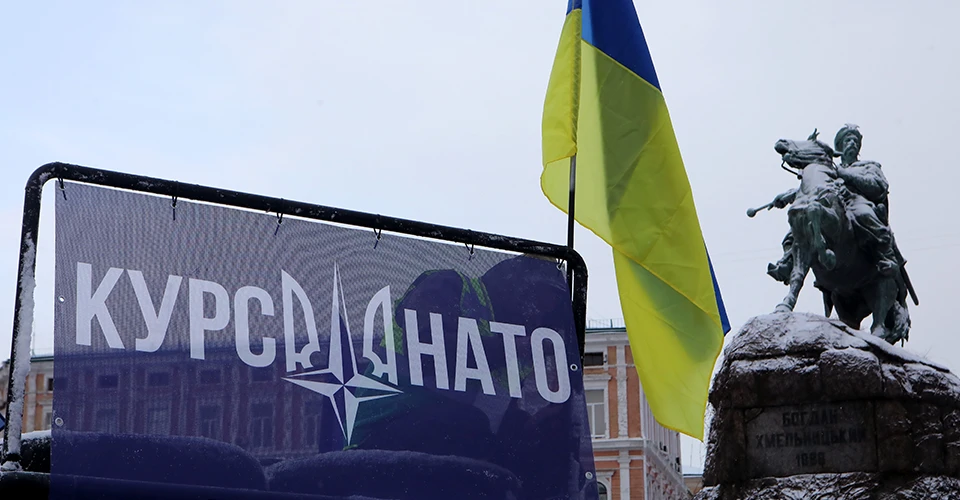
Photo: gettyimages
Interesting facts from the history of Ukraine-NATO relations
Ukraine, or rather the Ukrainian SSR, first applied for NATO membership in 1954. On March 10, the 1st Deputy Foreign Minister of the USSR, Andriy Hromyko, submitted a draft memorandum to Vyacheslav Molotov and the Presidium of the CPSU Central Committee regarding the promotion of the Pan-European Collective Security Treaty. As part of this initiative, the USSR expressed its willingness to join NATO in order to demonstrate the peaceful intentions of the proposed security system and dispel concerns that it would be directed against the Alliance.
On March 31, 1954, the USSR sent a diplomatic note to Western countries requesting to join NATO. At the same time as the USSR, but separately from it, the formal founding members of the UN, Belarus and the Ukrainian SSR, applied for membership in NATO. On May 7, 1954, the United States, France, and the United Kingdom rejected their applications.
Although Ukraine was not the first post-Soviet state to become a NATO member, it eventually became the first post-Soviet country to join NATO's Partnership for Peace program. This happened exactly 40 years later, on February 8, 1994.
Now the official NATO website has 4 language sections: English, French, Russian and Ukrainian.
The Ukrainian diplomatic mission to NATO is the only one located directly on the territory of the Alliance's headquarters. Diplomatic missions of other countries to NATO are located outside the headquarters in different locations in Brussels.
- News











